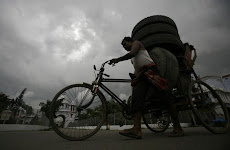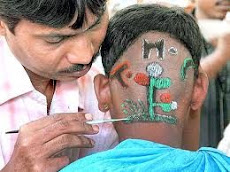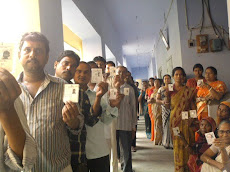 PTI, New Delhi, 27 May : Concerned over rising inflation in India, the Inter-Ministerial Group (IMG) today suggested opening up multi-brand retail to foreign investors and changes in agriculture marketing laws to check the rate of price rise.
PTI, New Delhi, 27 May : Concerned over rising inflation in India, the Inter-Ministerial Group (IMG) today suggested opening up multi-brand retail to foreign investors and changes in agriculture marketing laws to check the rate of price rise."We are taking a clear position on FDI in multi-brand retail. Of course, it is a recommendation, not policy," Chief Economic Advisor and IMG Chairman Dr Kaushik Basu told reporters here.
The IMG, he added, favours formulation of a model Agriculture Produce Marketing Committee (APMC) law, which could be adopted by the states to remove supply bottlenecks at the local level. "There is a need to revise the AMPC Act to reduce the price gap between farm gate and consumer prices. We need a model act to be adopted by states," he added.
Concerned over high inflation, the government in January had appointed a high-level inter-ministerial group to suggest steps to tame the rate of price rise.
Headline inflation stood at 8.66 per cent in April, much above the Reserve Bank''s comfort level of 5-6 per cent. Food inflation was 8.55 per cent for the week ended 14 May. Inflation continues to remain firm despite the host of steps taken by the government as well as the Reserve Bank of India over more than a year. န File Photo
-----------------------------------------------------------------------------------------------------------------------------
We have no indigenous population, Bangladesh tells UN
 Dhaka, 27 May : Bangladesh has told a UN forum that it has "no indigenous population".
Dhaka, 27 May : Bangladesh has told a UN forum that it has "no indigenous population".Dhaka has also objected to a study on the status of implementation of an accord the government signed in 1997 with the Buddhist tribals of the Chittagong Hill Tracts (CHT).
The accord, signed by the Sheikh Hasina government to end years of insurgency, had "nothing to do with the indigenous issue", Bangladesh's representative told the UN Permanent Forum on Indigenous Issues.
Bangladesh 'clarified' its stand over indigenous issues at the ongoing 10th session of the UN forum in New York 25 May, New Age newspaper said Friday quoting the International Jumma Organisation.
 Buddhism is the third largest religion in Bangladesh with about 0.7 percent of population adhering to Theravada Buddhism. Most of the practitioners are from the southeastern district of Chittagong and CHT.
Buddhism is the third largest religion in Bangladesh with about 0.7 percent of population adhering to Theravada Buddhism. Most of the practitioners are from the southeastern district of Chittagong and CHT.When the colonial British partitioned India before leaving in 1947, CHT was allotted to then East Pakistan even though the division was on religious lines.
The Buddhist tribals who live in CHT and surrounding areas have since faced discrimination from successive governments that have sought to settle Bengali Muslims to dilute the strength of the Buddhist population.
This policy has led to frequent clashes between the indigenous people and the settlers.
Many of the key provisions of the 1997 agreement remain unimplemented.
Iqbal Ahmed, first secretary in the mission to the UN, represented the country in the session especially marked for discussions on the report prepared by UN special rapporteur Lars Anders Baer.
A high-level delegation from Bangladesh, led by the state minister for CHT affairs, Dipankar Talukdar, cancelled its trip to New York at the last minute.
"Bangladesh does not have any 'indigenous' population… The accord has nothing to do with `indigenous issues and therefore, the government of Bangladesh reiterates its position that the forum, which is mandated to deal with `indigenous issues, does not have any locus standi in discussing the issues related to the CHT Peace Accord," the diplomat told the session.
"We urge the (UN) forum to dedicate its valuable time to discuss issues related to millions of indigenous people all over the world and not waste time on issues politically concocted by some enthusiastic quarters with questionable motives," he added. န File Photos : Arifur Rahman
--------------------------------------------------------------------------------------------------www.bengalnewz.com-----




















































































































































































